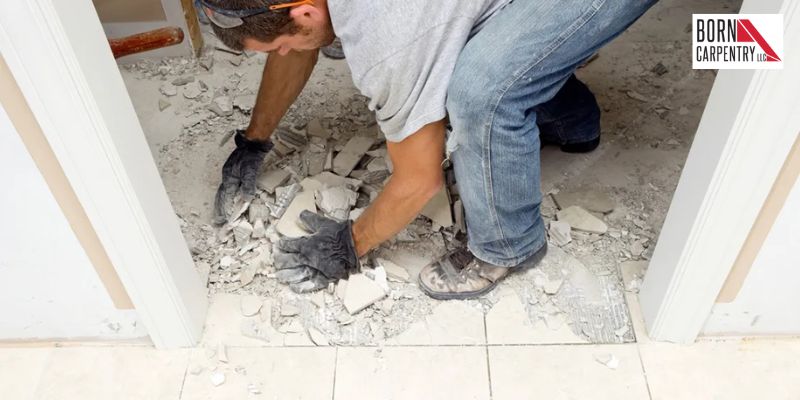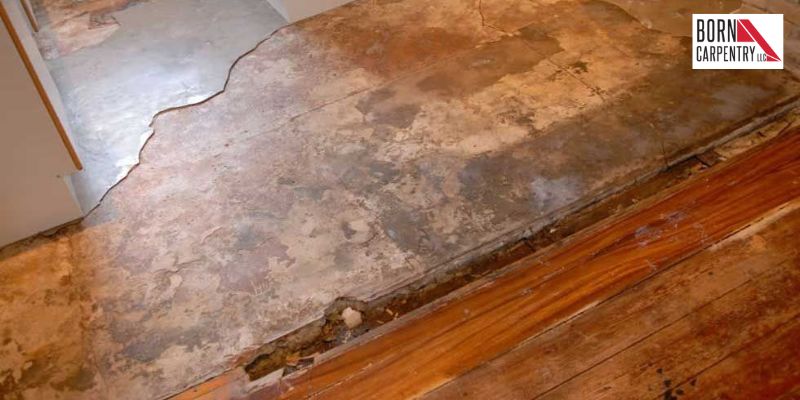As a homeowner, it is essential to keep an eye on the foundation of your home. The foundation is the backbone of your house, and any issues with it can lead to significant problems that could affect the structure’s stability. However, it is not always easy to tell when your home’s foundation is in trouble, especially if you are not familiar with the warning signs.
From cracks in the walls to uneven floors, there are certain signs that every homeowner should look for to ensure their home’s foundation is in good condition. By being proactive about your home’s foundation health, you can save yourself from costly repairs and potential safety hazards.
Don’t let your house crumble– check out these red flags…
#1 Cracks In Walls Or Floors:

One of the most common signs that your home’s foundation may be in trouble is the appearance of cracks in walls, floors or ceilings. Small, hairline cracks are usually not a cause for concern, but larger cracks or cracks that are wider at the top than at the bottom may indicate a more serious issue. These cracks can be caused by shifting or settling of the foundation and should be inspected by a professional.
#2 Uneven Or Sloping Floors:

If your floors are uneven or sloping, it may be a sign that your foundation is settling or shifting. You may notice that furniture or appliances are not sitting level, or that doors and windows are sticking or difficult to open or close. A professional inspection can help determine the cause of the problem and recommend the necessary repairs.
#3 Gaps Around Windows Or Doors:
If you notice gaps around your windows or doors, it may be a sign that your foundation is shifting or settling. As the foundation moves, it can cause the frames of your windows and doors to become misaligned, leaving gaps where air and water can enter your home. This can also lead to energy loss and increased utility bills. A professional inspection can help determine the cause of the problem and recommend the necessary repairs.
#4 Sagging Or Bowing Walls:
If you notice that your walls are sagging or bowing, it may be a sign that your foundation is under significant stress. This can be caused by a number of factors, such as soil erosion or excessive moisture, and can lead to serious structural damage if not addressed promptly. A professional foundation repair contractor can assess the situation and recommend the necessary repairs, which may include wall anchors or braces to stabilize the walls.
#5 Doors And Windows That Stick Or Won’t Close Properly:
If you notice that your doors or windows are sticking or won’t close properly, it may be a sign of foundation problems. This can occur as a result of shifting or settling in the foundation, causing the frames to become misaligned. Additionally, moisture and temperature changes can cause wood to expand or contract, making it difficult to close doors and windows. A professional inspection can help identify the underlying cause of the problem and recommend the necessary repairs.
#6 Cracks In The Foundation:
While some cracks in the foundation may be small and not a cause for concern, larger cracks may indicate a more serious problem. If you notice cracks that are wider at the top than at the bottom or cracks that run diagonally, it may be a sign of foundation settlement or shifting. A professional foundation repair contractor can assess the situation and recommend the necessary repairs, which may include foundation piers or underpinning to stabilize the foundation.
#7 Mold Or Mildew Growth:
If you notice mold or mildew growth in your home, particularly in the basement or crawl space, it may be a sign of foundation problems. Moisture can seep into the home through cracks or gaps in the foundation, leading to mold and mildew growth. A professional inspection can help identify the underlying cause of the problem and recommend the necessary repairs, which may include foundation repair and waterproofing.
#8 Plumbing Problems:
If you notice plumbing problems, such as slow drains or backed-up sewage, it may be a sign of foundation problems. Shifting or settling of the foundation can cause the pipes to become misaligned, leading to plumbing problems. A professional inspection can help identify the underlying cause of the problem and recommend the necessary repairs, which may include foundation repair and plumbing realignment.
Summary:
In conclusion, it’s essential to keep an eye out for any signs of foundation damage in your home. By addressing the early warning signs, you can avoid more costly repairs down the road. Regular maintenance and inspections can help prevent structural problems and keep your home in good condition. Remember, your home’s foundation is the backbone of your house, so don’t let it crumble!



